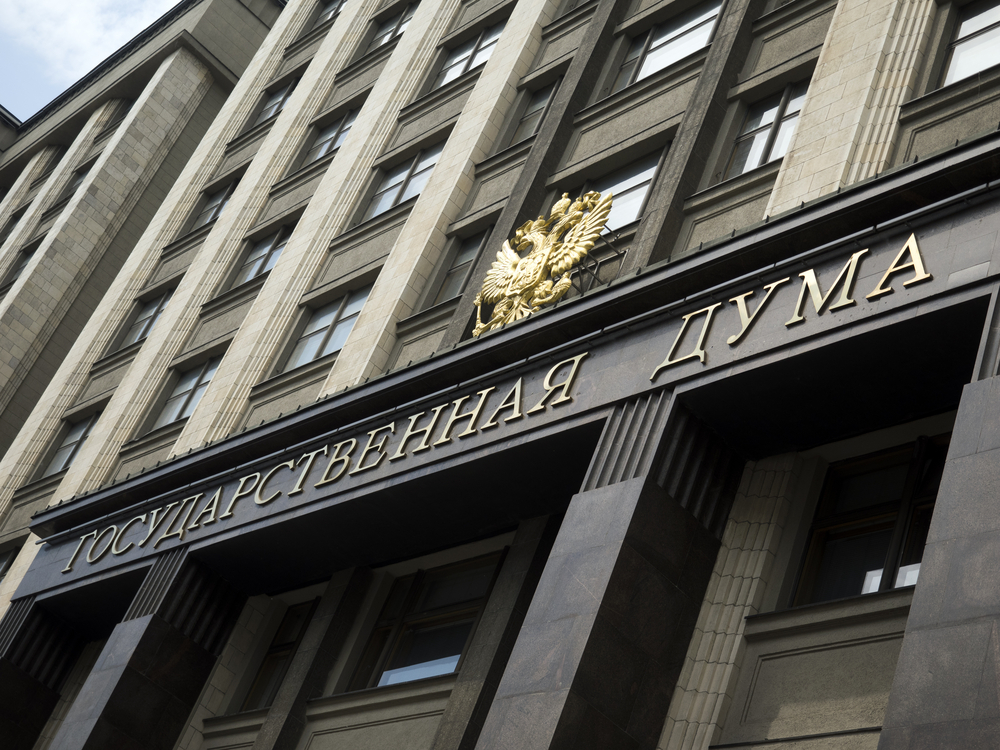Russian Legislature to Review Updated Bitcoin-Ban Seeking Bill in February

A draft bill submitted to Russia’s legislative assembly, the Duma, is updated to a new draft edition that may be reviewed as early as February. The updated draft is likely to exclude harsh punishments such as imprisonment for trading bitcoin and other cryptocurrencies, a punishment previously suggested by the Russian Finance Ministry.
The legislative initiative – originally forwarded in December – was initially seen as the first step to definitively criminalize cryptocurrency dealings and ban the use of bitcoin and other digital currencies.
The draft bill came in the aftermath of the severe punishment such as a 4-year prison sentence proposed by the Russian Finance Ministry to Russian citizens adopting cryptocurrencies.
At the time, Assistant Minister of Economic Development, Elena Lashkina said:
The use of surrogates, including cryptocurrency, is associated with a high level of risk.
The anonymous nature of the production of money substitutes, including cryptocurrency, [brings with it an] unlimited range of [threat] actors to create the conditions for the involvement of citizens and companies in illegal activity, including the laundering of proceeds from crime and terrorist financing.
However, a new draft edition forwarded to the Duma by the bill’s creators sees them looking over to Europe and the United Kingdom for cues on regulating and integrating cryptocurrencies.
As revealed by Forklog, the newly drafted Code does not include the ban of money surrogates that are in circulation among countries in Europe. Bitcoin was deemed as a surrogate currency in the earlier draft. With the updated draft, the money surrogates that are under the scanner for a ban do not include “any electronic money issued and circulating in accordance with legislation of the CIS countries, the European Union, as well as the United Kingdom.”
While the new draft bill does not include criminal punishment, as previously suggested by the Russian Finance Ministry, it includes monetary fines or, as the draft deems it, an ‘administrative penalty’. The creation of money surrogates and the promotion of software used for issuance of money surrogates will be considered crimes and will incur fines.
The clauses included in the bill were published by Forklog and an excerpt revealed:
Manufacturing for distribution purposes, or release of software, sufficient and necessaary for issuance of money surrogates, should those actions incorporate no criminally punishable acts, invoke an administrative penalty to the tune of 20,000 (approx. $260) to 40,000 rubles along with confiscation of the administrative violation item for citizens.
For individual entrepreneurs, the fines rose to eighty thousand to one hundred thousand rubles – along with confiscation of the equipment used. Officials who are found guilty according to the proposed draft will see a fine between 150,000 – 200,000 rubles while legal entities and companies could see a fine scale upwards of 4 million rubles to 5 million rubles (approx. $66,000).
Despite Russian authorities’ efforts to crack down on cryptocurrency adoption in the country with repeated efforts to ban bitcoin and other digital currencies, bitcoin’s blockchain isn’t getting the same scorn.
Nikolai Nikiforov, the Russian Minister for Communications recently stated the following to a state-owned news agency.
As a new technology, the blockchain is very interesting because it can be used in many areas, not just cryptocurrencies. Generally, we [the Ministry], must ascertain how to use this technology for the benefit of the public.
The Minister was confident in distributed ledger technology helping the Russian economy within the next decade.
Within days of Nikiforov’s comments, the Internet Development Institute (IRI) also sought to detach bitcoin and blockchain to make a pitch for the legalization of blockchain technology by 2017.
As things stand, it remains to be seen if the bill pushes the agenda to effectively curb bitcoin and other cryptocurrencies in Russia. Previous efforts to do so have failed.
Image from Shutterstock.